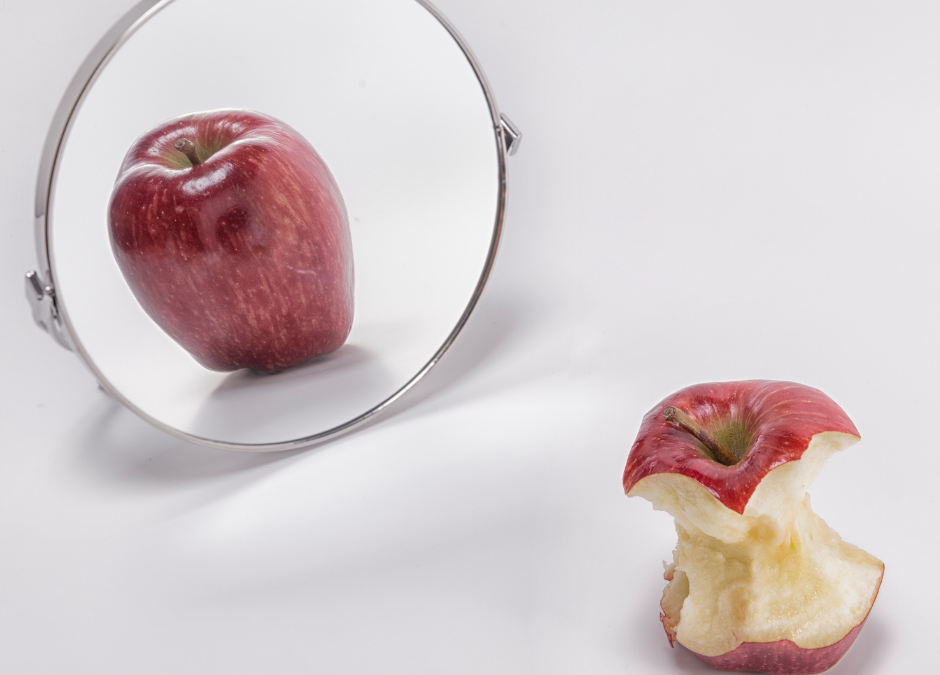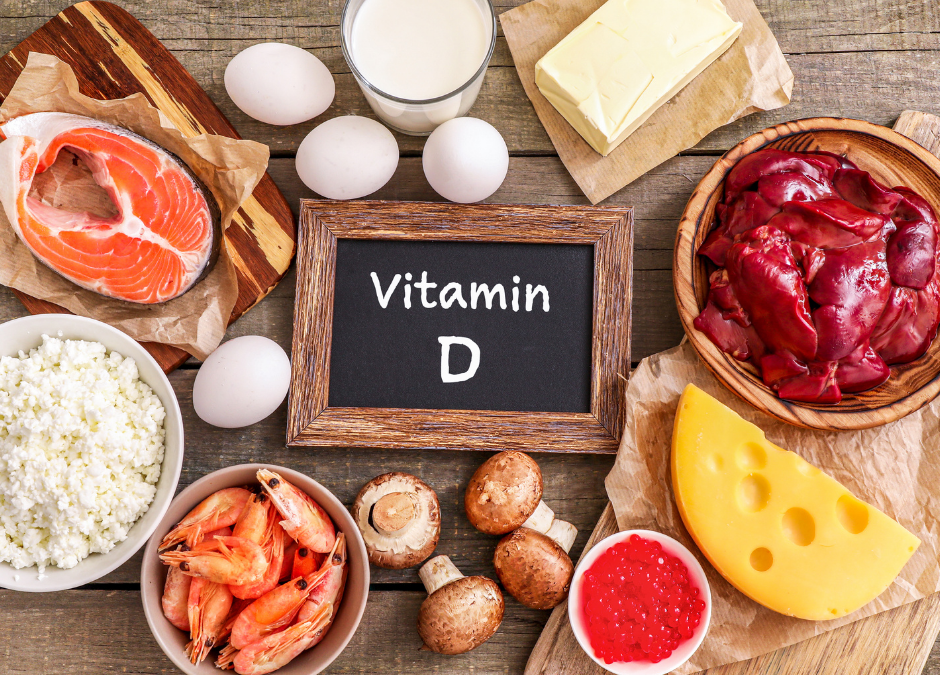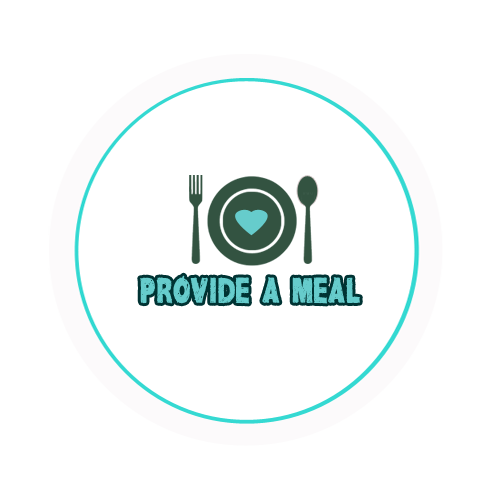
by lennie | Mar 1, 2022 | News, Nutrition
An eating disorder is a mental health condition where you use the control of food to cope with feelings and other situations.
Unhealthy eating behaviours may include eating too much or too little or worrying about your weight or body shape.
Anyone can get an eating disorder, but teenagers between 13 and 17 are mostly affected.
With treatment, most people can recover from an eating disorder.
Types of eating disorders
The most common eating disorders are:
- anorexia nervosa – trying to control your weight by not eating enough food, exercising too much, or doing both
- bulimia – losing control over how much you eat and then taking drastic action to not put on weight
- binge eating disorder (BED) – eating large portions of food until you feel uncomfortably full
Other specified feeding or eating disorder (OSFED)
A person may have an OSFED if their symptoms do not exactly fit the expected symptoms for any specific eating disorders.
OSFED is the most common eating disorder. You can find out more about OSFED on the Beat website.
Avoidant/restrictive food intake disorder (ARFID)
ARFID is when someone avoids certain foods, limits how much they eat or does both.
Beliefs about weight or body shape are not reasons why people develop ARFID.
Possible reasons for ARFID include:
- negative feelings over the smell, taste or texture of certain foods
- a response to a past experience with food that was upsetting, for example, choking or being sick after eating something
- not feeling hungry or just a lack of interest in eating
You can find out more about ARFID on the Beat website.
Check if you have an eating disorder
If you or people around you are worried that you have an unhealthy relationship with food, you could have an eating disorder.
Symptoms of eating disorders include:
- spending a lot of time worrying about your weight and body shape
- avoiding socialising when you think food will be involved
- eating very little food
- making yourself sick or taking laxatives after you eat
- exercising too much
- having very strict habits or routines around food
- changes in your mood such as being withdrawn, anxious or depressed
You may also notice physical signs, including:
- feeling cold, tired or dizzy
- pains, tingling or numbness in your arms and legs (poor circulation)
- feeling your heart racing, fainting or feeling faint
- problems with your digestion, such as bloating, constipation or diarrhoea
- your weight being very high or very low for someone of your age and height
- not getting your period or other delayed signs of puberty
You can read more about the symptoms of:
- anorexia
- bulimia
- binge eating disorder
Warning signs of an eating disorder in someone else
It can be very difficult to identify that a loved one or friend has developed an eating disorder.
Warning signs to look out for include:
- dramatic weight loss
- lying about how much they’ve eaten, when they’ve eaten, or their weight
- eating a lot of food very fast
- going to the bathroom a lot after eating
- exercising a lot
- avoiding eating with others
- cutting food into small pieces or eating very slowly
- wearing loose or baggy clothes to hide their weight loss
Getting help for an eating disorder
If you think you may have an eating disorder, see a GP as soon as you can.
A GP will ask about your eating habits and how you’re feeling, plus check your overall health and weight.
They may refer you to an eating disorder specialist or team of specialists.
It can be very hard to admit you have a problem and ask for help. It may make things easier if you bring a friend or loved one with you to your appointment.
You can also talk in confidence to an adviser from eating disorders charity Beat by calling their adult helpline on 0808 801 0677 or youth helpline on 0808 801 0711.
Getting help for someone else
It can be difficult to know what to do if you’re worried that someone has an eating disorder.
They may not realise they have an eating disorder. They may also deny it, or be secretive and defensive about their eating or weight.
Let them know you’re worried about them and encourage them to see a GP. You could offer to go along with them.
The eating disorder charity ‘Beat’ also has information on:
- what to do if you’re worried about a friend or family member
- what to do if you’re worried about a pupil
- what to do if you’re worried about an employee
- supporting someone with an eating disorder
Treatment for eating disorders
You can recover from an eating disorder, but it may take time and recovery will be different for everyone.
If you’re referred to an eating disorder specialist or team of specialists, they’ll be responsible for your care.
They should talk to you about the support you might need, such as for other conditions you have, and include this in your treatment plan.
Your treatment will depend on the type of eating disorder you have, but usually includes a talking therapy.
You may also need regular health checks if your eating disorder is having an impact on your physical health.
Your treatment may also involve working through a guided self-help programme if you have bulimia or binge eating disorder.
Most people will be offered individual therapy, but those with binge eating disorder may be offered group therapy.
Read more about the different treatments for:
- anorexia
- bulimia
- binge eating disorder
Treatment for other specified feeding or eating disorder (OSFED) will depend on the type of eating disorder your symptoms are most like.
For example, if your symptoms are most like anorexia, your treatment will be similar to the treatment for anorexia.
What causes eating disorders?
We do not know exactly what causes eating disorders.
You may be more likely to get an eating disorder if:

by lennie | Feb 23, 2022 | News
Palm oil is formed from the fruit of the African oil palm. It’s been a vital kind of oil for several millennia, however, over the past several decades, it’s become one of the most produced oils within the world. This {can be} because vegetable oil is extremely versatile — it’s semi-solid at temperature so it can be used as a variety, it’s immune to oxidation so it can make products last longer, and it can withstand high temperatures making it perfect for frying food.
The production of vegetable oil has led to deforestation and habitat destruction for orangutans, elephants, and rhinos. The problematic production of oil has gained widespread attention in recent years.
However, it’s not just the oil’s production that’s controversial, studies conflict on whether palm oil can provide health benefits.
Palm oil is rich in antioxidants, one of which is vitamin E. This vitamin is critical for keeping your immune system healthy and for helping your cells communicate. Studies show that getting enough vitamin e in your diet can reduce your risk of cardiovascular disease and certain forms of cancer.
Potential Health Benefits of palm oil:
Palm oil may be a great source of antioxidants, however, the identical aspects that make vegetable oil useful may sometimes cause complications for people with certain medical conditions.
Some of the health benefits that scientific studies currently support include:
Better Brain Health
The vitamin E found in vegetable oil has been connected to improved brain health. this way of E, referred to as tocotrienol, has been shown to shield brain tissue from dangerous free radicals more effectively than other antioxidants. In fact, one study showed that palm oil tocotrienols may even halt the progression of brain lesions. Yet, more studies are needed to further support these findings.
Promotes Heart Health
Certain studies appear to indicate that the vitamin e in vegetable oilcan also improve heart health. The antioxidant effects of fat-soluble vitamin found in oil seem to reduce or perhaps halt the progression of heart disease in some patients. While more studies must be done to replicate this effect, oil extract could also be useful for people fighting heart condition.
Potential Risks of Palm oil:
Because palm oil may be a dense source of nutrition, it’s going to have negative effects on some people. Consider the following before using oil in your cooking:
Increased Cholesterol Levels
While some studies suggest that palm oil decreases cholesterol levels, others suggest that it may raise “bad” cholesterol levels. These studies compared palm oil to other liquid oils likeolive oil, and generally found that palm oil performed worse than alternatives. One study found that palm oil increased cholesterol in healthy individuals.
Linked to Atherosclerosis
Fresh oil and older oil show significantly different levels of tocotrienol. due to this, reheated vegetable oil shows far fewer benefits than fresh vegetable oil. In fact, reheated oilmight not just lose the gutsbenefits of fresh oil, it’s going to actually increase your risk of heart diseaselike atherosclerosis. If you’rein danger for cardiovascular disease, avoid eating reheated palm oil or foods containing reheated palm oil.
High in Saturated Fats
Compared to other liquid oils, oilis comparatively high in saturated fats. palm oil is about 34% saturated fat, while olive oilis a smaller amount than half that. Saturated fats are linked to an increased risk of heart disease and chronic health conditions.
Download PROVIDE A MEAL app and feed someone today! 


by lennie | Feb 19, 2022 | Food Tips, Nutrition
Vitamin D is a fat-soluble vitamin in a family of compounds that includes vitamins D1, D2, and D3.
Your body produces vitamin D naturally when it’s directly exposed to sunlight. You can also get vitamin D from certain foods and supplements to ensure adequate levels of the vitamin in your blood.
Vitamin D has several important functions. Perhaps the most vital are regulating the absorption of calcium and phosphorus and facilitating normal immune system function.
Getting enough vitamin D is important for typical growth and development of bones and teeth, as well as improved resistance to certain diseases.
Here is more information about the benefits of vitamin D, plus information about downsides, how much you need, and foods with vitamin D.
1. Vitamin D may fight disease.
In addition to its primary benefits, research suggests that vitamin D may also play a role in:
- Reducing the risk of multiple sclerosis (MS). A 2018 review of population-based studies found that low levels of vitamin D are linked with an increased risk of MS.
- Decreasing the chance of heart disease. Low vitamin D levels have been linked to increased risk of heart diseases such as hypertension, heart failure, and stroke. But it’s unclear whether vitamin D deficiency contributes to heart disease or simply indicates poor health when you have a chronic condition.
- Reducing the likelihood of severe illnesses. Although studies are mixed, vitamin D may make severe flu and COVID-19 infections less likely. A recent review found that low vitamin D levels contribute to acute respiratory distress syndrome.
Supporting immune health. People who do not have adequate vitamin D levels might be at increased risk of infections and autoimmune diseases, such as rheumatoid arthritis, type 1 diabetes, and inflammatory bowel disease.
2. Vitamin D may regulate mood and reduce depression
Research has shown that vitamin D might play an important role in regulating mood and decreasing the risk of depression.
A review of 7,534 people found that those experiencing negative emotions who received vitamin D supplements noticed an improvement in symptoms. Vitamin D supplementation may help people with depression who also have a vitamin D deficiency.
Another study identified low vitamin D levels as a risk factor for more severe fibromyalgia symptoms, anxiety, and depression
3. Risks of getting too much vitamin D
If you take excessive amounts of vitamin D supplements, you may get too much of it. However, this is unlikely to happen through diet or sun exposure because your body regulates the amount of vitamin D produced through sun exposure.
Vitamin D toxicity can lead to an increase in your blood calcium levels. This can result in a variety of health issues, such as:
- nausea
- apathy
- vomiting
- abdominal pain
- dehydration
- confusion
- increased thirst
some food sources of vitamin:
Some foods contain vitamin D naturally, and others are fortified with it. You can find vitamin D in the following foods:
- salmon
- sardines
- herring
- canned tuna
- cod liver oil
- beef liver
- egg yolk
- shrimp
- regular mushrooms and those treated with ultraviolet light
- milk (fortified)
- certain cereals and oatmeals (fortified)
- yogurt (fortified)
- orange juice (fortified)
It can be hard to get enough vitamin D each day through sun exposure and food alone, so taking vitamin D supplements could help.
Download PROVIDE A MEAL app and feed someone today! 


by lennie | Feb 14, 2022 | Nutrition
Mushrooms are well known for his or her high-quality flavor and incredible fitness benefits. Packed with a ton of vital nutrients and minerals, they make for an super addition on your diet, including taste to many exceptional recipes. Crimini mushrooms are one of the maximum extensively used mushroom varieties, famous in kitchens across the world. Many don’t recognize that mushrooms, consisting of crimini mushrooms, are sincerely a sort of fungus. They’re local to North America and Europe and are recognized for his or her sensitive taste and meaty texture. Health Benefits Mushrooms are a low-calorie meals that packs a dietary punch. Loaded with many fitness-boosting nutrients, minerals, and antioxidants, they’ve lengthy been diagnosed as an vital a part of any diet. For instance, mushrooms raised with publicity to ultraviolet mild are a great supply of Vitamin D, an vital thing in bone and immune fitness. Crimini mushrooms are a in particular super supply of zinc, an vital hint element. Zinc is a important nutrient for the immune device and is likewise wanted for making sure top of the line boom in babies and children. Moreover, researchers have located some of different super motives for incorporating mushrooms into your diet, inclusive of:
Lower Blood Pressure – Mushrooms are wealthy reassets of potassium, a nutrient recognized for decreasing the bad effect that sodium could have in your body. Potassium additionally lessens the anxiety in blood vessels, probably assisting to decrease blood pressure. Boost Immune System The anti inflammatory impact of mushrooms has been proven to substantially enhance the performance of the immune device. Research has located that mushrooms assist stimulate microphages withinside the immune device, improving its capacity to defeat overseas our bodies and making you much less liable to critical illnesses.
Nutrition -Mushrooms are a wealthy, low calorie supply of fiber, protein, and antioxidants. They may additionally mitigate the danger of growing critical fitness conditions, inclusive of Alzheimer’s, coronary heart disease, cancer, and diabetes. They’re additionally high-quality reassets of:
Selenium
Copper
Thiamin
Magnesium
Phosphorous
Weight Loss – Long and short-time period research alike have located that mushrooms, in mixture with exercising and different way of life changes, could have an vital effect on weight loss. For example, after being requested to alternative 20 percentage in their red meat intake with mushrooms, studies members confirmed upgrades of their BMI and stomach circumference. The antioxidants in mushrooms also are notion to lessen the danger of high blood pressure and different metabolic disorders.
Download PROVIDE A MEAL app and feed someone today! 


by lennie | Feb 8, 2022 | Food Tips
Delicious foods that help you diet? It sounds too good to be true.No doubt: Weight loss comes down to simple math. You have to eat fewer calories than you burn.”Certain foods can help you shed body weight,” says Heather Mangieri, RD, a spokeswoman for the Academy of Nutrition and Dietetics, “because they help you feel full longer and help curb cravings.” Some even kick up your metabolism. So take this list when you go to the supermarket:Dark chocolate, sausage, nuts, and eggs? They’re all on the list. It’s about feeling full and satisfied.
1. Beans
Inexpensive, filling, and versatile, beans are a great source of protein. Beans are also high in fiber and slow to digest. That means you feel full longer, which may stop you from eating more.
2. Soup
Start a meal with a cup of soup, and you may end up eating less. It doesn’t matter if the soup is chunky or pureed, as long as it’s broth-based. You want to keep the soup to 100 to 150 calories a serving. So skip the dollops of cream and butter.
3. Dark Chocolate
Want to enjoy chocolate between meals? Pick a square or two of dark over the milky version. In one study, chocolate lovers who were given dark chocolate ate 15% less pizza a few hours later than those who had eaten milk chocolate.
4. Pureed Vegetables
You can add more veggies to your diet, enjoy your “cheat” foods, and cut back on the calories you’re eating, all at the same time. When Penn State researchers added pureed cauliflower and zucchini to mac and cheese, people seemed to like the dish just as much. But they ate 200 to 350 fewer calories. Those healthy vegetables added low-cal bulk to the tasty dish.
5. Nuts
For a great snack on the run, take a small handful of almonds, peanuts, walnuts, or pecans. Research shows that when people munch on nuts, they automatically eat less at later meals.
6. Apples
Skip the apple juice and the applesauce and opt instead for a crunchy apple. Whole fruit blunts appetite in a way that fruit juices and sauces don’t.
One reason is that raw fruit has more fiber. Plus, chewing sends signals to your brain that you’ve eaten something substantial.
7. Yogurt
Whether you prefer Greek or traditional, yogurt can be good for your waistline.
A Harvard study followed more than 120,000 people for a decade or longer. Yogurt, of all the foods that were tracked, was most closely linked to weight loss.
That doesn’t prove that yogurt caused weight loss, but it stood out among other foods.
8. Grapefruit
Yes, grapefruit really can help you shed pounds, especially if you are at risk for diabetes.
Researchers at Scripps Clinic in San Diego found that when obese people ate half a grapefruit before each meal, they dropped an average of 3 ½ pounds over 12 weeks. Drinking grapefruit juice had the same results.But grapefruit juice doesn’t have any proven “fat-burning” properties — it may just have helped people feel full.Be careful: You cannot have grapefruit or grapefruit juice if you are on certain medications, so check the label on all your prescriptions, or ask your pharmacist or doctor.
Shop Smart
Load your shopping cart with lots of lean protein, fresh veggies, fruit, and whole grains, says food scientist Joy Dubost, PhD, RD. The most important thing, when it comes to lasting weight loss, is the big picture of what you eat, not specific foods.
Finally eating three meals a day vs. snacking all day is easier to lose weight because you can stop fixating on food. When thoughts of food constantly enter your mind, you want to eat more of it. Live your life between meals, and allow yourself to not be constantly nagged by the pantry to come back for more!
Download PROVIDE A MEAL app and feed someone today! 











